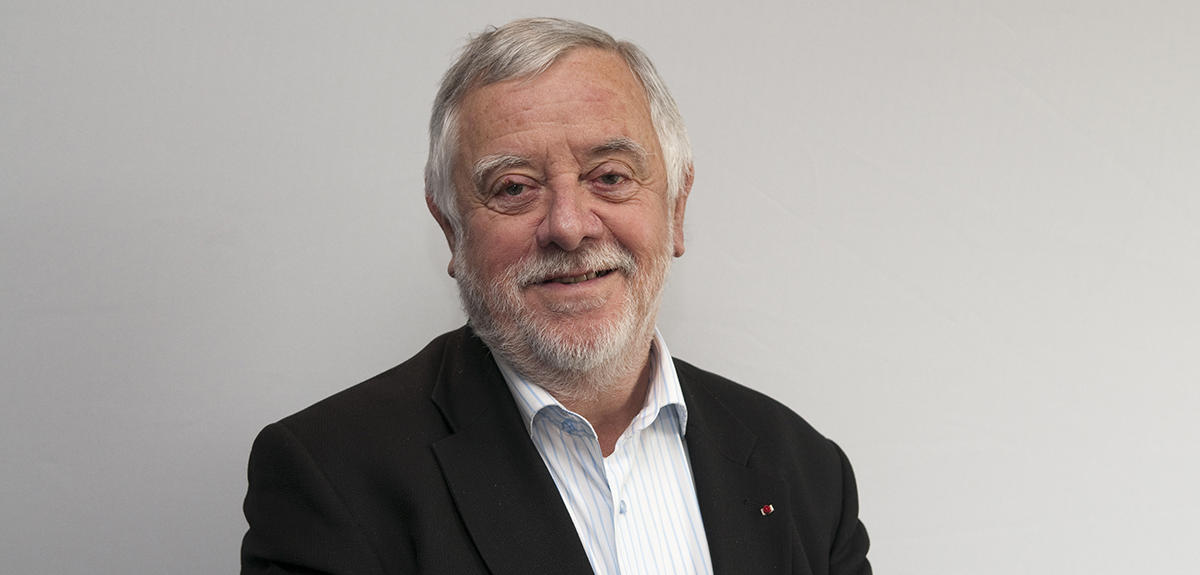You are here
Famed paleontologist Yves Coppens has died

He was one of the most well-known faces of French research. Yves Coppens, who was born in Vannes in 1934, marked the history of his discipline while sharing his discoveries with the general public. “The prehistoric sciences, and more broadly the sciences of the past ranging from palaeoanthropology to very early African palaeoenvironments, have most certainly just lost their best French ambassador,” recounts Bruno Maureille, a CNRS research professor at the PACEA Laboratory. “His passion for transmitting knowledge allowed him to interest all audiences, from youth to seniors, and whether it was a conference for the general public, or for radio or television. His voice was recognized by practically everyone.”
This sentiment is shared by Stéphanie Thiébault, who directed the CNRS’s Institute for Ecology and Environment (INEE) between 2013 and 2021: “The passing of Yves Coppens has taken one of the world’s most fervent promoters of Prehistory,” admits the palaeo- and archaeobotanist. “He not only trained multiple generations of prehistorians, but also passed on a taste for science, knowledge, curiosity, and even humour to those who listened to him. His comforting presence fostered high-level scientific exchange, and he remained welcoming and available to the end, contributing to debates and often provide new ideas.”
He joined the CNRS in 1956, leading expeditions to Chad and Ethiopia, as well as campaigns in Algeria, Tunisia, Morocco, Mauritania, South Africa, Indonesia, the Philippines, China, Siberia, and Mongolia. During these missions scientists gathered tons of fossils, representing so many invaluable clues regarding the history of hominids.
Of these fossils, fifty bones discovered in the Afar region of Ethiopia would leave a mark on collective memory, as they represent 40% of a hominin skeleton, which the French-American team that Coppens co-led with Maurice Taieb and Donald Johanson christened Lucy, after the famous Beatles song “Lucy in the Sky with Diamonds.” The Australopithecus (from the species Australopithecus afarensis), dating back over 3 million years, enlightened scientists, notably on the appearance of bipedalism.
This major discovery was not the only one of his career. Coppens was involved in recent palaeoanthropological discoveries in Chad and Kenya, and co-signed the discovery of six new hominids (the first in 1961, Tchadanthropus uxoris, dating back 1 million years). A record!
Recognized by myriad prestigious awards, including the CNRS Silver Medal, Coppens served as the Director of the Musée de l'Homme (Museum of Mankind) beginning in 1979. He was appointed Professor First Class at the French National Museum of Natural History, the holder of the Chair of Anthropology in 1980, and in 1983 was elected as the Chair of Palaeoanthropology and Prehistory at the Collège de France, a position he held until 2005 before becoming an honorary professor. “When he held his position at the Collège de France, Coppens was always very interested in helping the younger generation,” Maureille remembers. “For example, he would invite young doctoral fellows from Bordeaux working on human evolution to present their research as part of his teaching at the Collège. This was true for me on 8 November 1994—you do not forget your first ‘intervention’ at the Collège—on the facial morphology of hominins. In a way he was ‘arming’ us for the future, especially because he enjoyed an open debate with his invitee. I will never forget our exchanges on the differences between the face of Neanderthals and that of Homo bodoensis (Awash, Ethiopia).”
Coppens served in many capacities throughout his rich academic career, including as director of a laboratory, the Centre for Anthropological Research–Musée de l’Homme, and as President (in 2010) of the Scientific Advisory Board in charge of conserving the Lascaux Cave. “Yves Coppens was a figure that could be called on to serve as the chairman of various committees in order to ‘reassure’ elected representatives, for instance as part of museum-related town and country planning connected to scientific discoveries,” Maureille admits. “There was thus an assurance that the debates would remain polite between the specialists, and that ‘politicians’ would be convinced of the interest they held. This was exactly what happened during debates surrounding the project for an interpretation centre for Neanderthals in Saint-Césaire in Charente-Maritime in 1995-1996, which was inaugurated in 2005.”
Coppens died on 22 June 2022 at the age of 87.






